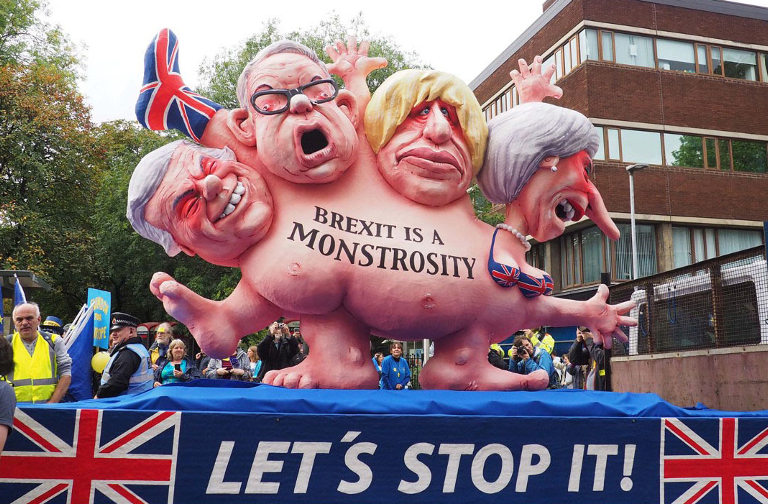Defend democracy – resist the parliament shutdown”. This is the rallying call of protestors gathering today to oppose Boris Johnson’s proroguing of parliament.
To be clear: I think the protests are well intentioned. Boris Johnson’s cynical attempt to force through a no deal Brexit is reckless and should be opposed, including on the streets if necessary.
But there is something unsettling about taking to the streets to “defend” our democracy, when it is precisely our broken democratic structures that are to blame for the mess we are in.
Of course Boris Johnson’s actions are undemocratic, but so is our entire system. As my colleague Adam Ramsay has argued at length, the ancient institutions of the British state are well past their sell-by date.
Our unelected House of Lords contains the only hereditary legislators in the world, and the only automatic seats for clerics outside Iran. We have a head of state that is appointed not on the basis of merit, but by bloodline. We have an “uncodified” constitution, which is to say that we don’t really have one. We have an electoral system which encourages millions to believe that voting can never make a difference. And we have an absurd concentration of power which ensures that citizens in most parts of the country have no say over the decisions that affect them.
Combined with an economic model that has left many on the wrong side of our finance-led economy, is it really any wonder that people jumped at the chance to “take back control”?
Painful as it has been, the Brexit vote provided a much needed wake up call. But while the EU is far from perfect, the real source of our problems can be found much closer to home.
So despite the good intentions, now is not the time to be defending Britain’s broken democracy. Instead, we should be demanding a democratic revolution.
Abolish the House of Lords? Why not. Establish a written constitution like most normal countries? A no-brainer. Decentralise power across the nations and regions? It would be crazy not to. Allow referendums on self-determination for any nation that wants one? That’s democracy.
With Queen Elizabeth nearing the end of her reign, it is also right that we have a national debate about the future of the Monarchy.
The stakes couldn’t be higher. Boris Johnson – a man of Eton, Oxford and the Telegraph – has successfully positioned himself as a “man of the people” whose noble attempts to uphold democracy are being thwarted by an out of touch elite. In this context, taking to the streets with a message of defending the status quo is potentially fatal. It is precisely what Johnson and his band of disaster capitalists want.
The only way to defeat them is to seize the agenda by offering a radical shake-up of Britain’s democratic structures. Together with a bold economic programme that makes a decisive break with neoliberalism, there is an opportunity to change the terms of the debate on what it means to “take back control”.
Britain’s constitutional crisis has been a long time coming. It’s not pretty, and it might not be on the terms of our choosing. But we can’t afford to let the crisis go to waste.
Teaser photo credit: By Robert Mandel, UK – Email from the author, CC BY 4.0





